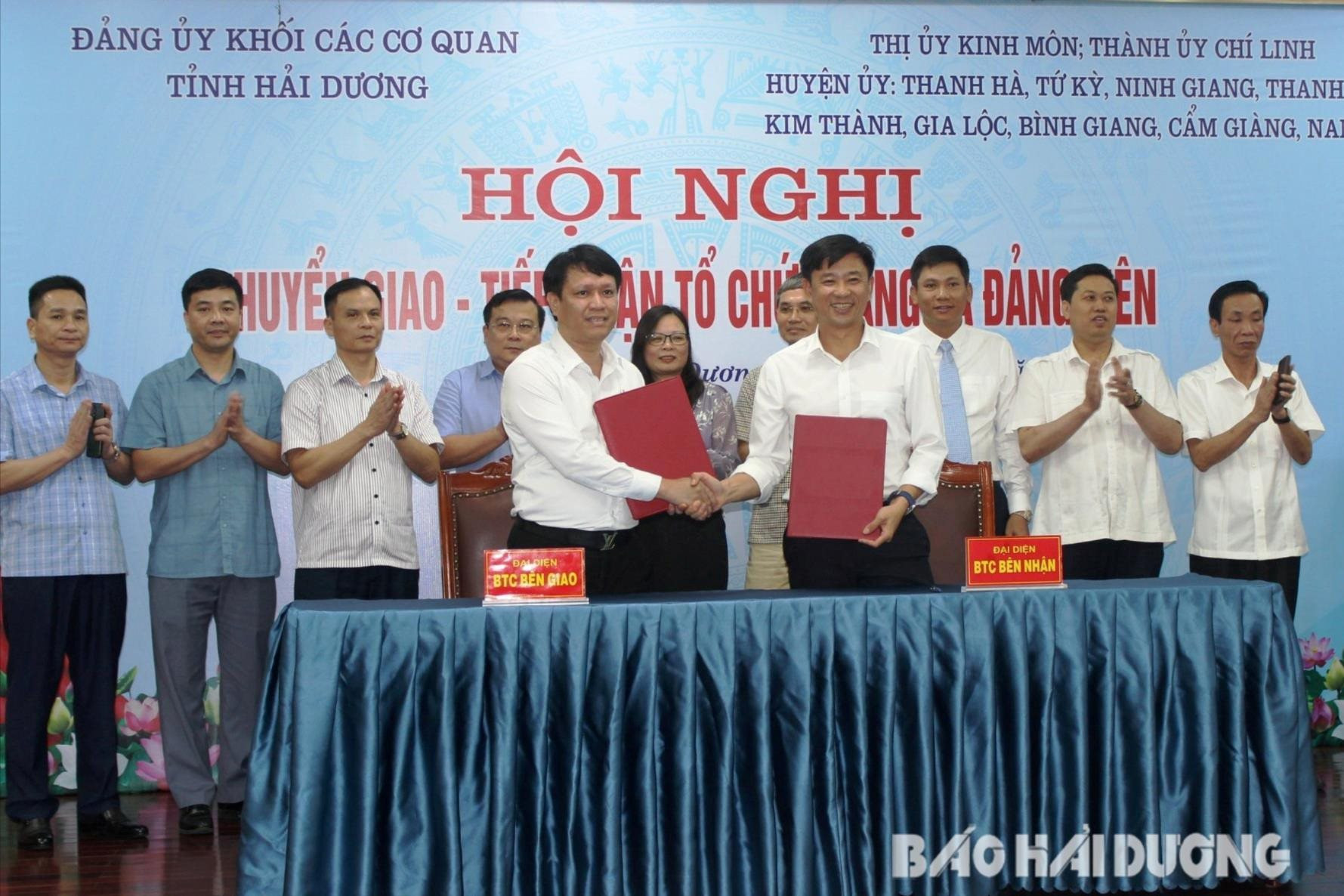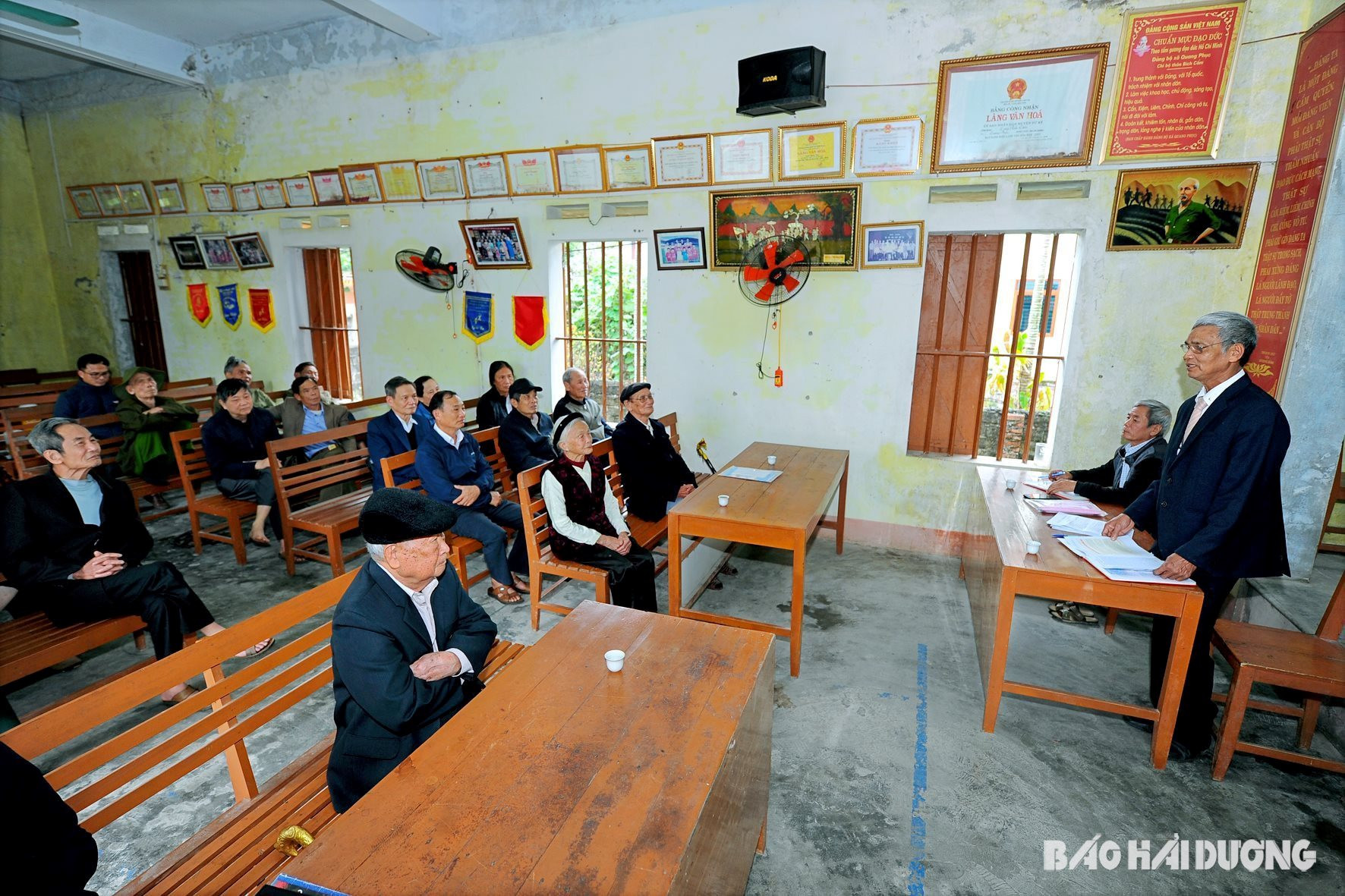Throughout the 94 years since its founding, our Party has always been steadfast in its principles of operation, including the principles of self-criticism and criticism. The Resolution of the 13th National Party Congress continues to emphasize “steadfastly upholding the principles of Party building to build and firmly defend the Socialist Republic of Vietnam”.

There is no wrongdoing, noself defensecriticism and criticism
We can easily agree that when we work, we make mistakes, only those who do nothing do not make mistakes. Therefore, mistakes are not shameful, the problem is whether we dare to admit them and find a way to overcome them. Self-criticism and criticism are very effective measures to identify and correct mistakes. VI Lenin said that "self-criticism is absolutely necessary for all living and vibrant political parties. There is nothing more trivial than complacent optimism”…, “if a political party does not dare to honestly tell its own illness, does not dare to diagnose the illness frankly and find a way to cure it, then that party does not deserve people's respect”… He concluded: “All revolutionary parties that have perished so far, perished because of arrogance, because they did not know how to see clearly what created their strength, and because they were afraid to speak up about their weaknesses. As for us, we will not perish, because we are not afraid to speak up about our weaknesses, and we will learn how to overcome those weaknesses”.
In Vietnam, even before the founding of the Party, Nguyen Ai Quoc taught his core cadres in Guangzhou (China) important principles for building a genuine Party. He highly valued the principles of criticism and self-criticism, considering them the law of development of the Party. Later, in his work “Reforming the Way of Working” written in 1947, he emphasized: “A party that conceals its shortcomings is a corrupt party. A party that has the courage to admit its shortcomings, clearly point out those shortcomings, clearly examine the circumstances that gave rise to those shortcomings, and then find every way to correct those shortcomings. That is a progressive, bold, steadfast, and genuine party.”
Since its founding, our Party has always attached great importance to “self-criticism”, self-criticism and criticism, considering it an important and decisive principle of life. In July 1939, after just over a year of assuming the responsibility of General Secretary of the Communist Party of Vietnam (in March 1938, when he was not yet 26 years old), comrade Nguyen Van Cu, under the pen name Tri Cuong, wrote the work “Self-criticism”, printed in the book The People. In “Self-criticism”, General Secretary Nguyen Van Cu emphasized the importance of conducting self-criticism and criticism, practicing democracy, building and consolidating solidarity and unity within the Party. Self-criticism “honestly and boldly” aims to “unify thoughts, a true, strong unity, based on the enlightenment and loyalty of everyone”... A true communist “even if he makes mistakes or fails, must have the courage to ‘open his eyes to see the truth’, ‘must take full responsibility…”.
On November 28, 1959, attending and speaking at the Party History Research Conference of the Central Party Propaganda Department, President Ho Chi Minh affirmed that: "Our Party has a sharp weapon to make Party members progress, to make the Party stronger and stronger, which is self-criticism and criticism". At the Conference, he affirmed: "With activities, it is difficult to avoid shortcomings. But when there are shortcomings, we must honestly criticize ourselves, welcome others to criticize us and resolutely correct ourselves. Individualism does not dare to criticize itself, does not want others to criticize us, and is not resolutely correct ourselves. Therefore, we regress, not progress"...
During the more than 94 years since its founding, our Party has always focused on “self-criticism”, self-criticism and criticism, self-examination, self-correction, considering it “the sharpest weapon, it helps our Party become stronger and stronger”, to unite the Party closely, to improve its leadership capacity, fighting strength, and to fulfill its historical mission before the nation and the people. In fact, in every revolutionary stage, the issue of self-criticism and criticism is also promoted and taken seriously. The peak periods of self-criticism and criticism were carried out, such as in the Dien Bien Phu Campaign in 1954, in the implementation of land reform in the period of 1953 - 1956, in the rectification campaign in the spring of 1965, especially since the beginning of the national renewal after the 6th Congress (1986)... brought about extremely positive results, contributing to arousing the revolutionary spirit, stopping individualism, the decline of revolutionary morality, negative phenomena and behaviors, and mistakes. Self-criticism and criticism that were serious, timely, objective, impartial, direct, and reasonable helped our Party clearly identify the limitations, shortcomings, and mistakes made and determined to overcome and correct them, thereby achieving great and outstanding achievements in all fields throughout the length of building and defending the Fatherland.
Ddaily lifepersonalitysEuropeyes, important

The Resolution of the 13th National Party Congress sets out the guiding viewpoint for the activities of the entire Party during the term as "firmly upholding the principles of Party building to build and firmly defend the Socialist Republic of Vietnam". The determination of this guiding viewpoint demonstrates the development of the Party's awareness of Party building work, and at the same time sets out a strong requirement to promote the principles of Party building in the face of the great challenges of the situation and tasks of the new period. That requirement requires each cadre, Party member, and Party organization to clearly perceive and thoroughly grasp this viewpoint in practical activities. One of those principles is self-criticism and criticism, to proactively point out strengths, to promote and clearly perceive shortcomings to overcome, in order to make Party members and Party organizations always maintain their role as pioneers and leaders.
At this point, let me return to the content of Resolution 144. Let me reiterate that the regulation consists of only 6 articles and 21 points, stating very specific requirements and criteria for 5 revolutionary ethical standards for cadres and party members in the new period. All 5 standards are very short, concise, easy to remember, and there is nothing too new or strange to cadres and party members. The content related to self-criticism and criticism is spread throughout all articles, but the most specific and in-depth is in Article 3 related to the standards of diligence, thrift, integrity, uprightness, impartiality, and selflessness.
Throughout his life for the country and the people, President Ho Chi Minh left behind many priceless legacies, always relevant, which every cadre and party member must learn and follow in their work and daily life. He affirmed that “diligence, thrift, integrity, and uprightness” are essential requirements, the “four basic virtues” that form the “root” of a revolutionary. He briefly explained that DILIGENCE “is diligence, hard work, and perseverance”; “if necessary, anything, no matter how difficult, can be done”. Frugality “is thrifty, not extravagant, not wasteful, not messy”. INTEGRITY “is clean, not greedy” and “greed for money, position, fame, delicious food, and a peaceful life are all INDEED”. INTEGRITY “means not evil, means being straightforward and upright. Anything that is not straightforward and upright is evil. “DILIGENCE, THOUGHT, AND INTEGRITY are the roots of RIGHTEOUSNESS. But a tree needs roots, branches, leaves, and fruits to be complete. A person must be diligent, thrifty, and honest, but also RIGHTEOUS to be complete”. In the work “Reforming the way of working” written in 1947, he called for practicing the slogan: “Impartial, impartial, diligent, thrifty, honest, and upright!”. On the first page of the golden book of Nguyen Ai Quoc Central School, he clearly wrote: “Study to work, to be a person, to be a cadre. Study to serve the organization, the class, and the people, the Fatherland, and humanity. To achieve the goal, one must be diligent, thrifty, honest, upright, and impartial”.
Recalling his thoughts on self-criticism and criticism associated with the virtues of "diligence, thrift, integrity, uprightness, impartiality and selflessness" to see more clearly that our Party's promulgation of Regulation 144, which includes content related to the standards of these virtues, is extremely timely and necessary to continue building and rectifying the Party, continuing to perfect its leadership, leading the country to overcome difficulties and obstacles, continuing to reap great achievements on all fronts, increasingly building, fostering, clearly affirming that, "our country has never had such a foundation, potential, position and international prestige as today", as the Document of the 13th National Party Congress clearly stated.
Part 3: “Wash your face every day” to avoid “dirt”
NGUYEN TRI THUC, Member of the Editorial Board, Head of the Special Topics and Special Editions Department of Communist Magazine